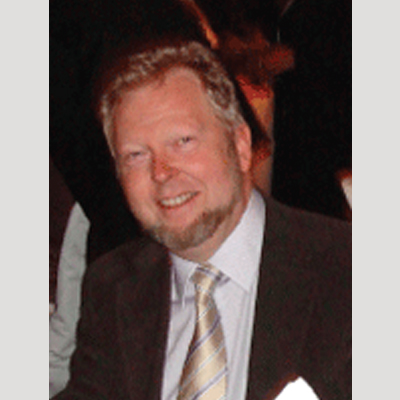First of all we would like to congratulate you on your IATDMCT presidency and wish you a very successful and enjoyable 2013–2015 term.
We are particularly pleased and grateful about your agreement to give us the first interview for our new column “IATDMCT Mentors Interview”. With this column of the Compass we would like to give longstanding IATDMCT members the opportunity to share their experience both in the field of TDM/CT and as active members of IATDMCT with our young colleagues.
We are confident that the answers to the questions we have put together will offer invaluable tips for their individual professional development and encourage them to actively participate in shaping the future of IATDMCT.
COMPASS IN INTERVIEW WITH PROFESSOR PIERRE WALLEMACQ (BELGIUM)
IATDMCT PRESIDENT 2013-2015
» View the original PDF Interview
Professor Wallemacq, for how long have you been an IATDMCT member?
In fact, since 1990. It was during the second IATDMCT congress in Oct 1990, in Barcelona, I discovered the interests and potential of this association. Since then I have participated in all Congresses.
How did you get started in IATDMCT and what advice do you have for young people wanting to get involved?
I really appreciated the enthusiasm, the scientific quality as well as the size of this association, able to develop real friendships and collaborations. I would certainly advise young people involved in personalized medicine (pharmacodynamics, pharmacogenetics, pharmacokinetics, TDM.), as well as in clinical or analytical toxicology to apply and become a member. This association wants to encourage young scientists by reducing as much as possible their membership fee, particularly for those from developing or emerging countries. As in all international associations, the future depends on the young generations of scientists. IATDMCT initiated recently a renewal of its communication tools, including Podcasts, eLearning, LinkedIn, Twitter, etc. This should attract even more younger people.
What area(s) do you specialize in and what initiated your interest in this (these) area(s)?
I finished my PhD in the late 80’s studying the metabolism and pharmacokinetics of cyclosporine after organ transplantation, in one of the first Belgian laboratories involved in TDM. Since then, fascinated by this fast growing field, the progress in the patient’s outcome, as well as by the clinicians themselves, I kept working in this area. Later, in the 90’s, I was asked to supervise and develop a laboratory of clinical and forensic toxicology. The analytical methods are quite similar, and a good background in pharmacology and toxicokinetics represented a clear advantage. As we know, both activities are promoted in the IATDMCT, and once again, I discovered newer areas of interest and new collaborations.
What, in your opinion, has been the most important contribution you have made to the field of TDM/CT?
Promotion of TDM was my main objective during these 30 years. Demonstrate its usefulness and understand its limitations. During these last decades, I gave more than 200 invited lectures about TDM throughout the world, trying always to convince the audiences on the potential benefit of this activity for the patients. I tried to be active during each IATDMCT congress, and to bring with me several students or PhD trainees. For more than 25 years I have taught TDM/CT in my university to pharmacists and biomedical sciences students, and more recently I was invited by the authorities of our university to teach the basis of clinical pharmacokinetics and TDM to medical students. In 2007, I organized in Brussels, a European consensus conference on tacrolimus optimization. Key opinion leaders accepted to participate making this meeting a real success, resulting in a nice paper published in Therapeutic Drug Monitoring with more than 100 citations. My group also developed a PK software “Pharmonitor” distributed freely to all Belgian laboratories involved in TDM together with some training. This was made possible with the help of the Health authorities.
What were some of the most important and/or challenging moments in your professional career?
A professional career is made of challenges. We should always accept to reconsider and reassess what you made. Automation, consolidation of techniques, analytical progress, economic or administration pressure, quality assurance requirements etc. It is a never ending story. One of the secret of success is to keep humble and develop a good network of professional friendships and collaborations. The day, you believe you reached the optimal approach in your laboratory and don’t want considering any change, you are ready to retire.
Which advances do you predict in your area over the next ten years?
It is very hard to predict the future, but I would personally imagine a continuous improvement of the analytical methods (faster, higher sensitivity, specificity and automation), a larger involvement of “modelisation and mathematical” supports to improve the prediction of individualized dosage regimen, a larger contribution of pharmacodynamics biomarkers in the management of the treatments, and a reduction of the blood sampling for the comfort of the patients (smaller blood volume, lower frequency of sampling etc.). Ultra-fast TDM, such as bed-side testing and “online” dosage recommendation, may also appear possible thanks to the nanotechnologies. The place of “omics” sciences still needs to be clarified (metabolomics, proteomics etc.). Most likely, these sciences will help us to identify new biomarkers potentially useful in the management of the patients.
What do you see as the challenges facing young scientists in TDM/CT?
Finding a good center, a good mentor, and some financial support, is becoming a real challenge for young scientists. This is why, I believe, it is important for these young scientists to get involved in associations such as the IATDMCT which represents a unique opportunity to meet many opinion leaders in TDM/CT.
If you could start your career over, what would you do differently?
I have no particular regrets, I consider myself as very lucky to be able to work in the field of my interest, in a large and academic facility.
The content of the IATDMCT Blog does not necessarily have the endorsement of the Association.



